Last checked, there are approximately four thousand recognized religions in the world. Most of us are familiar with ones such as Christianity, Islam, Judaism, Hinduism, etc. Then there’s a handful of religions such as Scientology that have notoriously been in the headlines of news for various reasons. With the number of religions being so high, speaking your beliefs can often lead to deep dives into differing ideologies and unbendable opinions.
For Andrew Choi, he found himself seemingly moved on from his days of growing up in a family that was embraced lovingly as congregants in various Lutheran and Methodist churches in Ohio. However, Choi never truly allowed himself to be void of keeping in touch with what was transpiring. He paid attention to the ebbs and flows of those who moved in and out of being religious. Choi also had an introspective reflection on death and the afterlife.
Ten Songs of Worship and Praise for Our Tumultuous Times – Choi’s fourth album as the moniker St. Lenox via Don Giovanni / Anyway Records – portrays storytelling at its most prosperous state. Encapsulating sprawling instrumentals and some of his most vital singing to date, the tracks reveal spirituality that doesn’t feel pretentious or preachy.
You were fortunate enough to train at Juilliard. What did you discover about yourself during your attendance?
It was a place where I was able to find other people who had a shared outlook on music that I wasn’t able to find elsewhere easily. Classical music is an area of music where there is a high bar to developing technical proficiency. There’s an even higher bar to developing interpretive mastery of the material, especially with phrasing (sometimes what they would call “musicality”). Especially at the high school age, there’s really only a handful of people every few years in the United States that can perform the Brahms or Paganini Violin Concertos or similar works with real interpretive depth. That can be really isolating to a kid growing up in the Midwest. So being able to find other people who could understand and share in that beauty was nice.
Much of that art is lost, especially in a lot of pop music, which is too bad. I basically don’t and can’t have those conversations now because I don’t really hang out with classical musicians. People’s approach to singing these days tends to fit into what I’d call a “signature style” paradigm, where signature style consists of a small handful of vocal tics, which they apply fairly straightforwardly to a song. But phrasing and musicality are generally about choices and expressing your agency as an artist through the music. In any passage, there are thousands of ways to approach it, and making choices about how to approach it is literally a form of expressing your agency in music. The signature style approach sucks a lot of the life, intellect, and agency out of singing, which is something that I miss. Though, I do still see it every now and again in excellent jazz singers and outstanding Broadway singers.
It’s interesting because music writers like to throw around that pop musicians are “classically trained,” which these days amounts to saying merely that they had some formal training in classical music. It’s fairly meaningless as applied because what matters isn’t the training; it’s whether the artist actually understands and can speak the language of that approach or not. Many people who are classically trained – and they will tell you this themselves – struggle with that mastery, which is why I do quibble with the question a bit. I didn’t just train at Juilliard – I won awards at the national and international level and excelled in the program at Juilliard when I was there. Even at Juilliard, many violinists lack mastery of phrasing and musicality.
Who were some artists that you looked to as inspiration when you started playing music?
Before I started singing and writing, I listened to a lot of R.E.M. in high school. Listening to their records helped me understand the power of pop songwriting, which I never had much experience with as a classical musician – I mean, there are some connections, but it is more indirect. R.E.M. songs at their best are just really excellent masterclasses in song construction which I am still amazed at and aspire to as a writer. Michael Stipe is also I think a very expressive singer in that I do think he has a bit of that classical approach in him. There’s this song off of Dead Letter Office, called “The Voice of Harold,” where he sings “7 Chinese Bros.” but with some random words from a pamphlet, and I think you can see the thought process there on the relationship of words to expression.
That was many years before I started performing music as St. Lenox, which was maybe ten years later. Just before I started writing, I was picking up the Great American Songbook and learning how to sing jazz standards at smoke-filled bars in Columbus, OH while learning the catalog of American pop at karaoke bars in the same.
For jazz, I was inspired a lot by Nina Simone and especially Sarah Vaughan. Her interpretive prowess helped me see the possibility of incorporating phrasing mastery into popular music in a way I hadn’t thought about. For American pop, I didn’t have any particular inspirations – I was more interested in just learning an increasingly broad range of pop music. I developed a catalog of maybe now 600 songs from every decade of American music. I never was looking to imitate the performance of the original artist completely. Still, I did try my best to capture the spirit of what they were going for and then add in my own interpretation for how I’d perform it. But in a way, karaoke is exactly the standards approach, right?
Having lived in Columbus, Ohio at one point, what can say that you miss living in the Midwest?
There was an open mic at a bar called Andyman’s Treehouse, where an excellent musician Joe Peppercorn was the host. What I enjoyed about that open-mic, and I think it reflects on the Midwest in general, is that there was no pressure. You’re free to do anything you want. I felt comfortable enough at that open mic to try out a lot of different thoughts and experiments with my writing, and I wouldn’t be the writer I am today if I hadn’t had that experience. But I think that’s sort of like the Midwest too? A lot of musicians who come to NYC and other music cities get what I call “hit songwriter disease,” where they try too hard to write a hit song. And it’s crippling. Even a lot of what’s “weird” about musicians in big cities end up feeling forced or too directed at seeking attention. But the pattern generalizes to life as well. I had a friend I graduated from law school with who was moving to the Midwest a few years ago, and I told him that what I enjoyed most was the open space. The open space means you can do anything. I think that encapsulates what I think about the Midwest as a creative space.
You work for a Manhattan firm, all while creating music. What do you do when you find yourself struggling with having to balance the two worlds?
I don’t struggle. If there’s a conflict, I do my work because my work pays me. The music I do when I have time as a public service to society. Like picking up trash at a public park. I frankly don’t understand the desire to do music 100% of the time. It’s not because the music would be my job, and I’d hate it. It’s because having a job where I’m not the center of attention and just doing a small unrecognized bit to help the world turn is a central part of human life. And the music that we make shouldn’t ever become completely unhinged from that. I also think there’s this approach to doing music 100% of the time, where people end up doing a lot of what I’ll call makeweight creative work, and it helps them fulfill this idea for themselves that they’re surviving solely on music.
I don’t understand that because the makeweight work ends up being stuff they hate doing, and then this “music 100% of the time” thing becomes a nominal phrase. I can put out a record every few years. From an artistic standpoint, I am doing work comparable to or exceeds the work of name-brand artists who spend 10x as much money with a team of professional writers, publicists, and businessmen. That’s more important to me than saying that I can survive only on money I make from music.
Living in a rather unusual time right now, how have you been mentally?
I am married, healthy, and employed. Every day this past year I feel lucky to have those three things. COVID was pretty stressful, especially at the beginning. But if I’m honest, I think Trump was probably worse for my mental health than COVID. (And then, of course, there was the combination Trump/COVID that we had for a bit of time, but that’s already months ago, right?).
Having already released three solid albums, what did you want to explore musically with this latest effort?
I wanted to talk about religion in a positive way, and this ended up with a record that rethinks and expands on the concept of praise music. I’m fairly literal about the title of the record in that I really do think of the songs as a kind of praise music. Just not the praise music that I hear when I press the wrong button on the radio driving through the Midwest. I mean, I think if God is supposed to be all-powerful, all good, and all-knowing, they are probably fairly sophisticated too.
I mean, if I were God and someone came up to me and was, “I worship you, you’re the greatest!” that would be super awkward to me. I think if God exists, they are more sophisticated than that and would want their praise music to be more artful, right? So much modern praise music is written to be inspirational to worshippers – I mean, that is the rationale behind Christian rock and pop music, right – because the worshippers like rock and pop music? But the target audience of worship music isn’t supposed to be worshippers; it’s supposed to be God, right? So my question is, what is the praise music that God would want? Otherwise, that’s like getting a bowling ball for your wife’s birthday because you love bowling. Christian rock and pop is a bowling-ball wedding anniversary gift.
Having been so devoted since an early age, when did you start to see the discord of religion come personally?
I mean, I think it’s not really a discord of religion; it’s a discord of people. I remember this one church in Ames (where I grew up) had a bad reputation because they thought that the people going to all the other churches were going to hell. But that’s people. I don’t see anything in the Christian Bible saying that everyone in Ames, Iowa is going to hell except for the people who go to this specific church. People get into that funk because people are bad.
How difficult was it not to go all across one side politically or religiously when writing the album?
I think not too difficult when the focus is on worship and praise. I think so much of what I’ll call post-Christian or ex-Christian music is just very snarky and angry. Not that people don’t have a right to be snarky and angry about Christianity. But I think it’s a very old hat. The same goes with vague Christian metaphor music. Either talk about God or don’t is my thought. So I’m talking a lot about God on this record and not musically subtweeting about it, which I think is tiresome—and doing it in a way that seeks to be open-minded and gracious.
Where do you stand on religion these days, if you don’t mind me asking?
I’m a philosopher. I have no clue what religion or God or worship or faith or any of that is.
Your albums have specific themes that are so relatable to everyone. What has been the thought process on what you want to explore?
I don’t set about ahead of time to write albums on specific themes. I write about what’s going on in my life, and because I’m experiencing the same world that everyone else is, it ends up being a commentary on life in this world at this time. The themes come through after the fact. I had a bunch of songs that touched on religion in America these days and the movement of people away from Christianity over the last few decades. It was no accident that a lot of other people had that same experience.
The next record is going to be about labor.
What are you looking forward to now that it seems that we are working towards a new normal?
I want to go to open mic and karaoke and sing again.
Photo Courtesy: Janice Chung


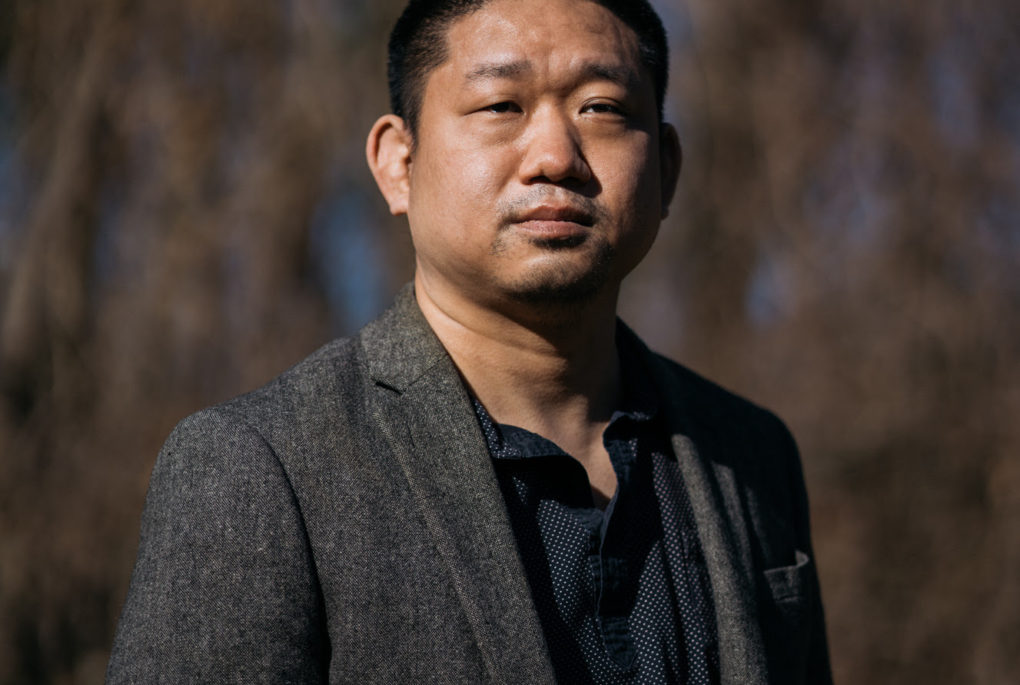
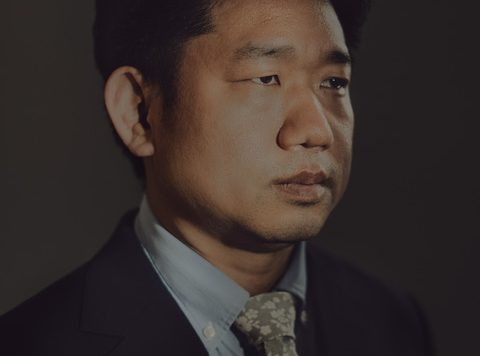
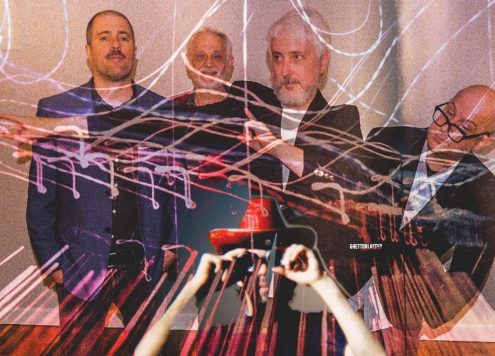
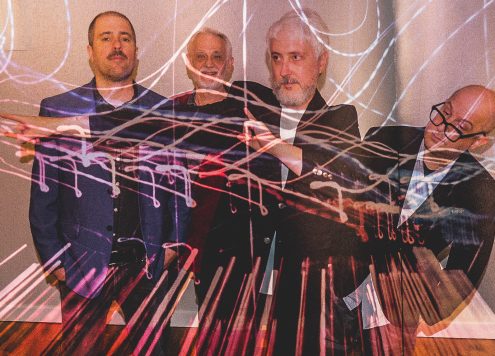
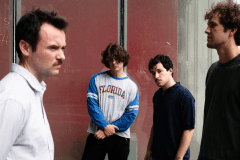
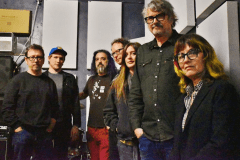

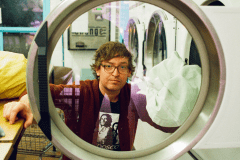

Social Media